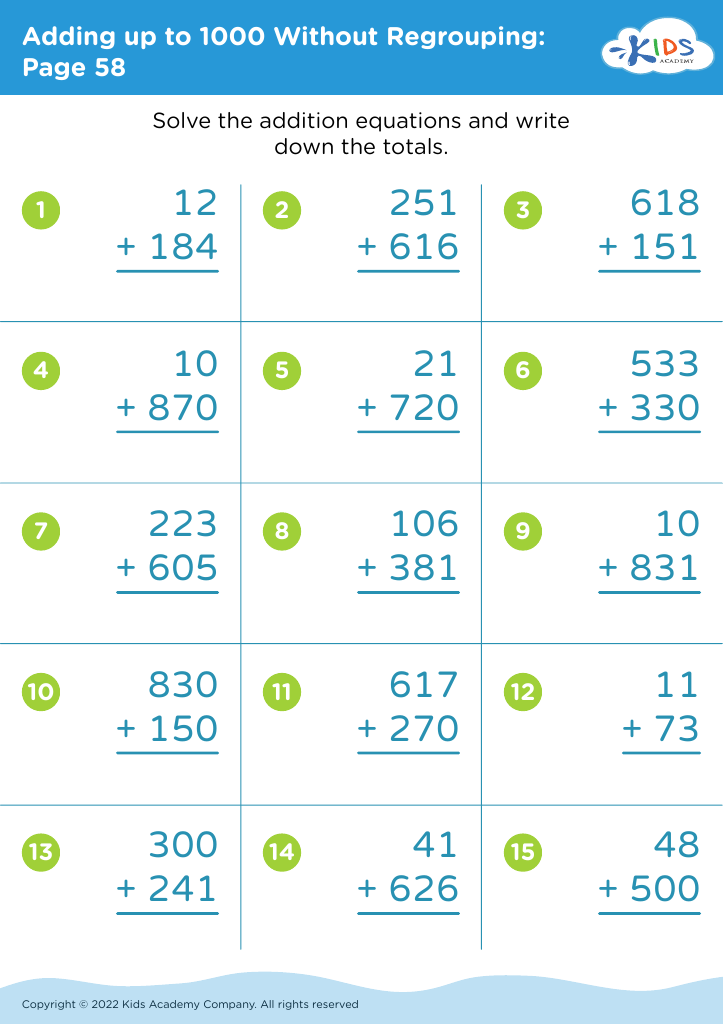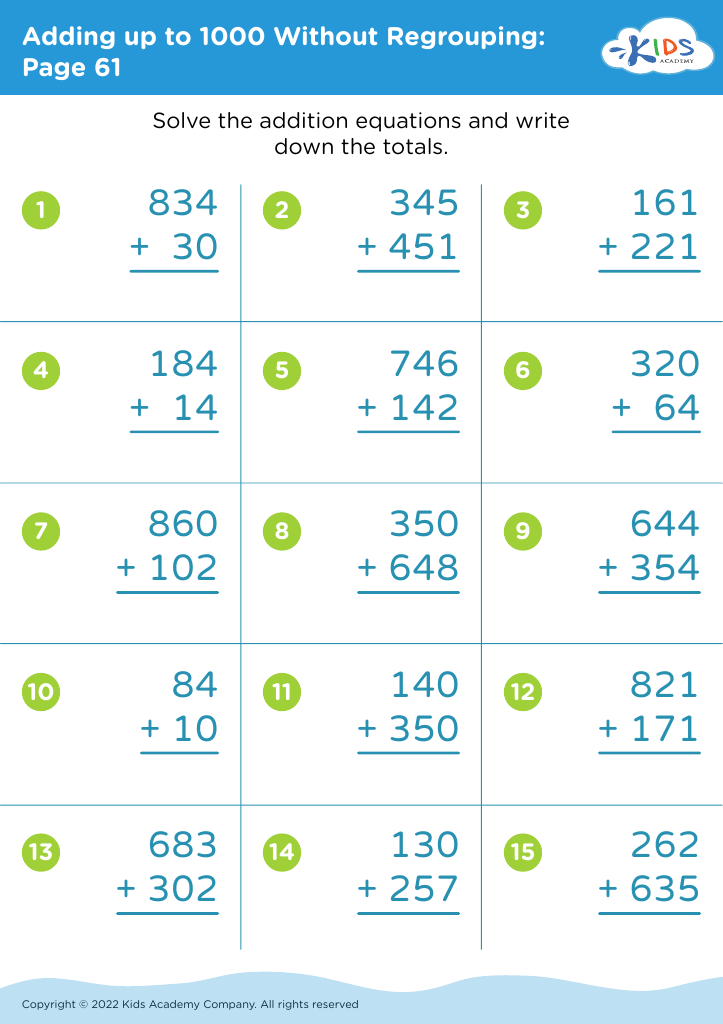Recognizing shapes Adding up to 1000 Without Regrouping Worksheets for Ages 5-9
3 filtered results
-
From - To
Unlock your child's potential with our "Recognizing Shapes Adding up to 1000 Without Regrouping Worksheets for Ages 5-9." These expertly designed worksheets integrate essential math skills like recognizing shapes and adding numbers up to 1000 without regrouping. Perfect for young learners, our worksheets offer a fun and interactive way to enhance arithmetic skills, promote critical thinking, and build a strong math foundation. Suitable for kids aged 5-9, these engaging activities make learning enjoyable and effective. Visit Kids Academy to download your printable worksheets and turn math practice into an exciting adventure for your child!
Parents and teachers should care about recognizing shapes and adding up to 1000 without regrouping for children ages 5-9 as these skills are foundational for cognitive development and math proficiency. Recognizing shapes is critical because it enhances spatial awareness and problem-solving abilities, which are applicable in diverse areas such as reading maps or assembling puzzles. Shapes also form the basics of geometry, aiding children in understanding the properties of objects and their visual characteristics, which can foster creativity and analytical thinking.
Adding up to 1000 without regrouping, on the other hand, strengthens computational fluency and number sense. Mastering this skill builds confidence in performing arithmetic operations, ensuring that children are comfortable tackling more complex problems later on. It provides a grasp of the place value system, ensuring children comprehend hundreds, tens, and units, which is fundamental for higher-level mathematics.
Moreover, these skills collectively contribute to a child's academic success and self-esteem. Early proficiency in these areas often correlates with better performance in school subjects, setting a strong academic foundation. Therefore, focusing on these skills not only nurtures essential math abilities but also promotes overall intellectual growth, paving the way for future learning milestones.
















